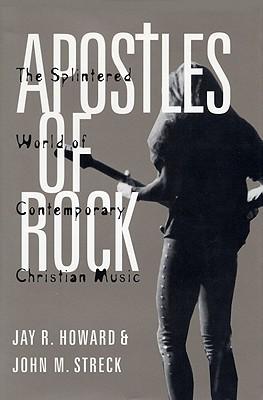Apostles of Rock is the first objective, comprehensive examination of the contemporary Christian music phenomenon. Some see CCM performers as ministers or musical missionaries, while others define them as entertainers or artists. This popular musical movement clearly evokes a variety of responses concerning the relationship between Christ and culture. The resulting tensions have splintered the genre and given rise to misunderstanding, conflict, and an obsessive focus on self-examination. As Christian stars Amy Grant, Michael W. Smith, DC Talk, and Sixpence None the Richer climb the mainstream charts, Jay Howard and John Streck talk about CCM as an important movement and show how this musical genre relates to a larger popular culture. They map the world of CCM by bringing together the perspectives of the people who perform, study, market, and listen to this music. By examining CCM lyrics, interviews, performances, web sites, and chat rooms, Howard and Streck uncover the religious and aesthetic tensions within the CCM community. Ultimately, the conflict centered around Christian music reflects the modern religious community's understanding of evangelicalism and the community's complex relationship with American popular culture.

Apostles of Rock: The Splintered World of Contemporary Christian Music
Apostles of Rock is the first objective, comprehensive examination of the contemporary Christian music phenomenon. Some see CCM performers as ministers or musical missionaries, while others define them as entertainers or artists. This popular musical movement clearly evokes a variety of responses concerning the relationship between Christ and culture. The resulting tensions have splintered the genre and given rise to misunderstanding, conflict, and an obsessive focus on self-examination. As Christian stars Amy Grant, Michael W. Smith, DC Talk, and Sixpence None the Richer climb the mainstream charts, Jay Howard and John Streck talk about CCM as an important movement and show how this musical genre relates to a larger popular culture. They map the world of CCM by bringing together the perspectives of the people who perform, study, market, and listen to this music. By examining CCM lyrics, interviews, performances, web sites, and chat rooms, Howard and Streck uncover the religious and aesthetic tensions within the CCM community. Ultimately, the conflict centered around Christian music reflects the modern religious community's understanding of evangelicalism and the community's complex relationship with American popular culture.